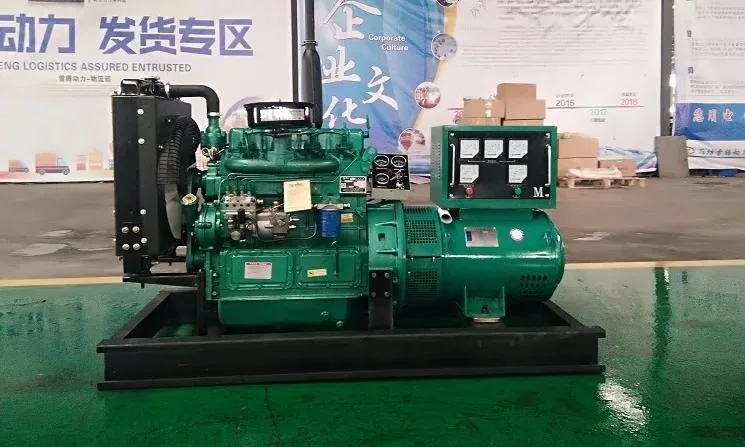Introduction
Diesel generators play a crucial role in providing backup power in various industries, commercial establishments, residential buildings, and remote locations where access to the grid is limited. These generators are known for their reliability, durability, and efficiency, making them a popular choice for applications requiring continuous or standby power supply. To ensure optimal performance and longevity of diesel generators, it is essential to adhere to specific performance standards that govern their design, installation, operation, and maintenance. This article delves into the key performance standards for diesel generators, highlighting the importance of compliance and best practices to maximize their efficiency and reliability.
1. Overview of Diesel Generators
A diesel generator is a combination of a diesel engine and an electric generator used to generate electricity. Diesel generators are commonly used as backup power sources in critical facilities such as hospitals, data centers, telecommunications infrastructure, and industrial plants. The primary components of a diesel generator include the diesel engine, alternator, fuel system, cooling system, exhaust system, control panel, and safety devices. Diesel generators are available in various configurations, ranging from small portable units to large industrial generators capable of powering entire facilities.
2. Importance of Performance Standards
Performance standards for diesel generators are essential to ensure the safe and efficient operation of these critical power sources. Compliance with performance standards helps to mitigate risks, enhance reliability, and extend the lifespan of diesel generators. By adhering to established standards, operators can optimize the performance of diesel generators, minimize downtime, and prevent catastrophic failures. Performance standards also serve as guidelines for manufacturers, installers, and maintenance personnel to maintain consistency and quality in the design, installation, and operation of diesel generators.
3. Key Performance Standards for Diesel Generators
a. Design Standards
Design standards for diesel generators specify the requirements for the design, construction, and testing of generator sets to ensure their safe and reliable operation. These standards cover aspects such as power rating, fuel efficiency, emissions control, cooling system design, noise levels, and environmental considerations. 75kw diesel generator with design standards ensures that diesel generators meet performance requirements, regulatory requirements, and industry best practices. Common design standards for diesel generators include ISO 8528, IEC 60034, NFPA 110, and AS/NZS 3001.
b. Installation Standards
Proper installation is crucial for the optimal performance and safety of diesel generators. Installation standards provide guidelines for site selection, foundation design, electrical connections, fuel supply, exhaust system design, and ventilation requirements. Adhering to installation standards helps prevent common issues such as vibration problems, overheating, fuel contamination, and inadequate ventilation that can compromise the performance of diesel generators. Standards such as ANSI/IEEE C62.41 and NEC Article 700 provide guidelines for the installation of diesel generators in various applications.
c. Operation Standards
Operating diesel generators in accordance with established standards is essential to maximize their efficiency and reliability. Operation standards cover aspects such as startup procedures, load management, maintenance schedules, fuel quality requirements, and safety protocols. Following operation standards helps prevent overloading, overheating, fuel system failures, and other operational issues that can lead to downtime and costly repairs. Standards such as ISO 3046, ISO 8528, and NFPA 110 outline best practices for the operation of diesel generators in different applications.
d. Maintenance Standards
Regular maintenance is key to ensuring the long-term performance and reliability of diesel generators. Maintenance standards provide guidelines for inspection, testing, and servicing of critical components such as the engine, alternator, cooling system, fuel system, and control panel. Adhering to maintenance standards helps identify potential issues early, prevent breakdowns, and prolong the lifespan of diesel generators. Standards such as ISO 8528, NFPA 110, and manufacturer-recommended maintenance schedules outline the necessary maintenance tasks and intervals for diesel generators.
4. Best Practices for Maximizing Performance

In addition to complying with performance standards, there are several best practices that can help maximize the performance of diesel generators:
a. Regular Testing and Monitoring: Conduct routine load bank testing, fuel quality testing, and performance monitoring to ensure the diesel generator is operating within specified parameters and performance standards.
b. Preventive Maintenance: Implement a comprehensive preventive maintenance program that includes regular inspections, lubrication, filter replacement, and testing of critical components to prevent unexpected failures and downtime.
c. Training and Certification: Ensure that operators, maintenance personnel, and service technicians are properly trained and certified to operate, maintain, and repair diesel generators in accordance with performance standards.
d. Emergency Preparedness: Develop and implement an emergency response plan that outlines procedures for responding to power outages, equipment failures, and other emergencies that may require the use of diesel generators.
d. Environmental Compliance: Adhere to environmental regulations and best practices for emissions control, fuel storage, spill containment, and waste disposal to minimize the environmental impact of diesel generator operations.
5. Conclusion
Compliance with performance standards is essential for maximizing the efficiency, reliability, and longevity of diesel generators. By following design, installation, operation, and maintenance standards, operators can ensure that diesel generators perform optimally and provide reliable backup power when needed. Adhering to best practices such as regular testing, preventive maintenance, training, emergency preparedness, and environmental compliance can further enhance the performance of diesel generators and mitigate risks associated with their operation. By prioritizing performance standards and best practices, organizations can maintain a reliable power supply and safeguard their critical operations against disruptions and downtime.
